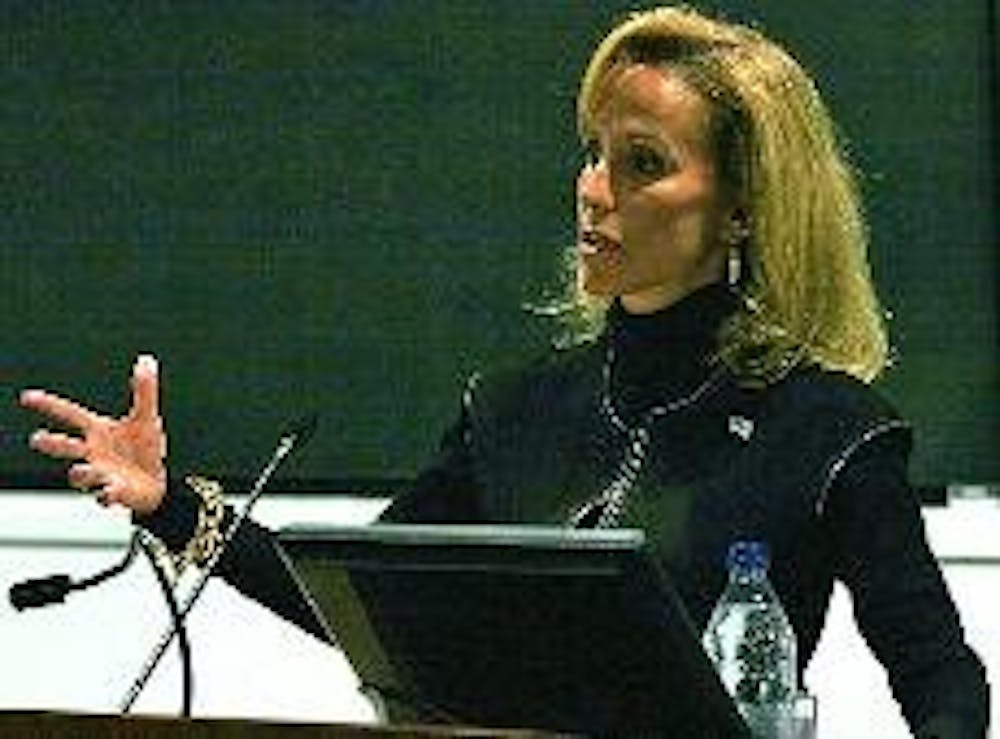President Obama's most significant homeland security challenges will involve fighting terrorists on the ground and protecting the United States from criminals who abuse digital technology, said Frances Townsend, an AU alumna who served as former President George W. Bush's homeland security advisor between 2004 and 2007, during a Kennedy Political Union event Wednesday.
Obama must neutralize threats from the border of Afghanistan and Pakistan if he is to successfully uphold domestic security, Townsend said.
| An interview with Frances TownsendHOWIE PERLMAN / THE EAGLE |
Obama must also deal with the threat of weapons of mass destruction; while terrorists have a low probability of actually bringing them to the United States, they would be devastatingly powerful if activated, Townsend said. America's nuclear weapons can be used as an effective deterrent against many potential foes, she said.
"What do you do with this capability, that over decades we've spent billions of dollars?" Townsend said. "Is there some contingent use, or do you just want to, over time, reduce the national nuclear stockpile and do away with it? We care about proliferation from rogue states like North Korea, we care about nuclear proliferation ambitions in a state like Iran, and you've got the expertise you've paid for and maintained, why not use that to solve 21st century problems?"
The former national security adviser also said cyber security, or protecting digital information from people who want to steal or corrupt that information - sometimes known as "cyberterrorists" - is the Obama administration's third major national security concern. There are four main ways digital information can become compromised: through the efforts of a hacker outside the organization whose information is targeted, through the efforts of someone on the inside, through someone purposefully corrupting software before it is sold and by the work of people pretending to fix computers corrupting them instead, Townsend said.
Erin Waters, a freshman in the School of Communication, said she will now think more about the threat of cyberterrorists when she considers broader topics regarding terrorism.
"It's not usually something that most people think of when they think of terrorism," she said. "They think of, perhaps, planes crashing into buildings or other issues like that, but cyber security, usually that's in the back of people's minds. The potential devastation of a cyber-attack is something to really take into consideration."
Townsend also worked in the Clinton administration Justice Department as a top counterterrorism advisor for then-Attorney General Janet Reno.
Townsend graduated from AU with a B.A. in political science and a B.S. in psychology in 1982.
Michael Monrroy, a sophomore in the School of Public Affairs, said he is proud he is receiving an education at the same university that Townsend once attended.
"It says that AU is a terrific school for people who want to do great things in the world," he said. "So no matter what your views on anything in life are, if you are set on it, and you know you want to do something real about it, with an education at AU you can do it."
You can reach this staff writer at hperlman@theeagleonline.com.





